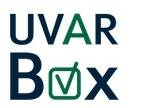
The partners look forward to undertaking already existing and new follow-up initiatives after the project together with (new) stakeholders, to demonstrate the value of the cooperation and improve it with further use cases and experiences and, eventually, make the concept sustainable and fully accepted.
Several crucial follow-up activities were identified. These are detailed in the SOCRATES2.0 Consolidation Report and are summarised here.
Data standards


A common digital language, to communicate traffic management-related information between the various partners, is a crucial building block to enable the concept of interactive traffic management. Within the SOCRATES2.0 project part of the work was to harmonise the data messages being communicated in our pilots, in terms of data structure and data content. However, such harmonisation work is only a small part of the puzzle within the wider scope of stakeholders and use cases. So, further validation and enhancement for future deployment on an EU-wide scale is necessary and addressed in the new EU-funded UVAR and NAPCORE projects.
Further exploration of the SOCRATES2.0 Cooperation Framework
Based on lessons learned and the experiences from four pilot sites, multiple business ideas emerged for the SOCRATES2.0 cooperation models. The most innovative and promising examples were an effort-driven business model and an impact-driven business model, where the main goal is to create a common value proposition.
Within the project we learned that the win-win-win is not easy to find. Incentives and rewards are assumed to be part of the solution as well as the currently lacking methods of measuring service usage and follow-up behaviour. Also, a win-win-win is not per se a monetary value, but can also be an increased user base or improved service offering smarter routes or destination recommendations.
Partners experienced the great potential of the concept and look forward to applying it in follow-up initiatives together with new stakeholders. We feel this requires detailing proper foundations for business models, with a focus on a multi-party cooperation with public and private partners in the traffic management domain. Among other aspects, this would cover new procurement, contractual and rewarding schemes. The value of that kind of integration needs to be further demonstrated with new use cases and experiences that provide more insight into the win-win-win and further elaborate on the business perspective.
Regulation and legislation
An important framework for regulation and legislation in the context of interactive traffic management is the EU ITS Directive and its Delegated Regulations. It has the potential to facilitate the pre-requisites for the Exchanged Data cooperation model, especially when considering the extension of the geographical scope and data types to the urban environment. We expect that the mandate on making this data available in a standardised format via National Access Points will accelerate the interactive traffic management concept. That is provided appropriate and sufficient data offers are made available by the various data providers addressed by the regulations. Motivated by the EC funding, the SOCRATES2.0 consortium is spreading knowledge on related learnings in a wider scale to advance both the concept and the practical realisation of the EU regulations. The latter was showcased by data offers on National Access Points established in our pilot deployments.
Sustainability goals

Other relevant EU frameworks at a strategic level are EC’s Sustainable and Smart Mobility Strategy 2020 and Data Strategy and the EC’s White Paper on Artificial Intelligence. SOCRATES2.0 covers many topics, such as digitalisation and access and use of data, that aim to generate business opportunities, innovation, new services and business models, and create safer and cleaner transport systems via data-driven applications. SOCRATES2.0 also addresses the sustainability goals of these frameworks in a practical way, for example in the Copenhagen pilot, where one of the Network Manager’s roles was to foster sustainable travel modes. SOCRATES2.0 developed several building blocks that promote the EC’s strategic goals and will also be in operation beyond SOCRATES2.0.













